Visuino Running LED
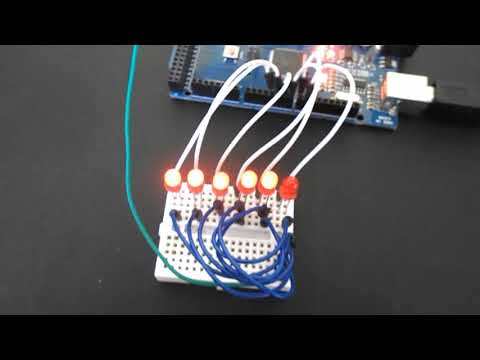
In this tutorial we will use 6x LED, Arduino UNO, and Visuino to run LED light using sequence component. Sequence component is perfect for situations where we want to trigger several events in sequence.
Watch a demonstration video.
What You Will Need
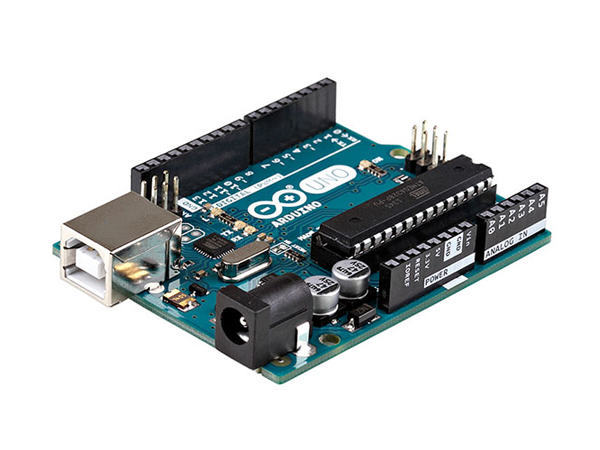
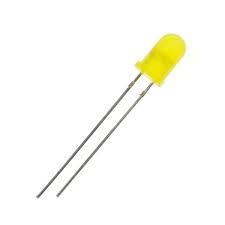
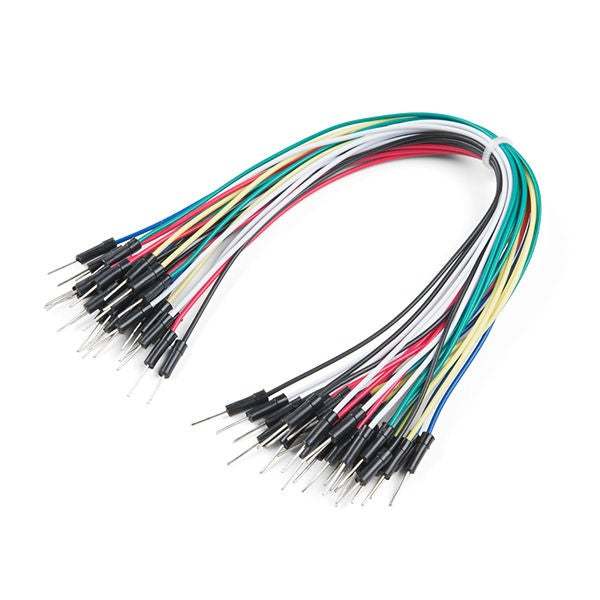
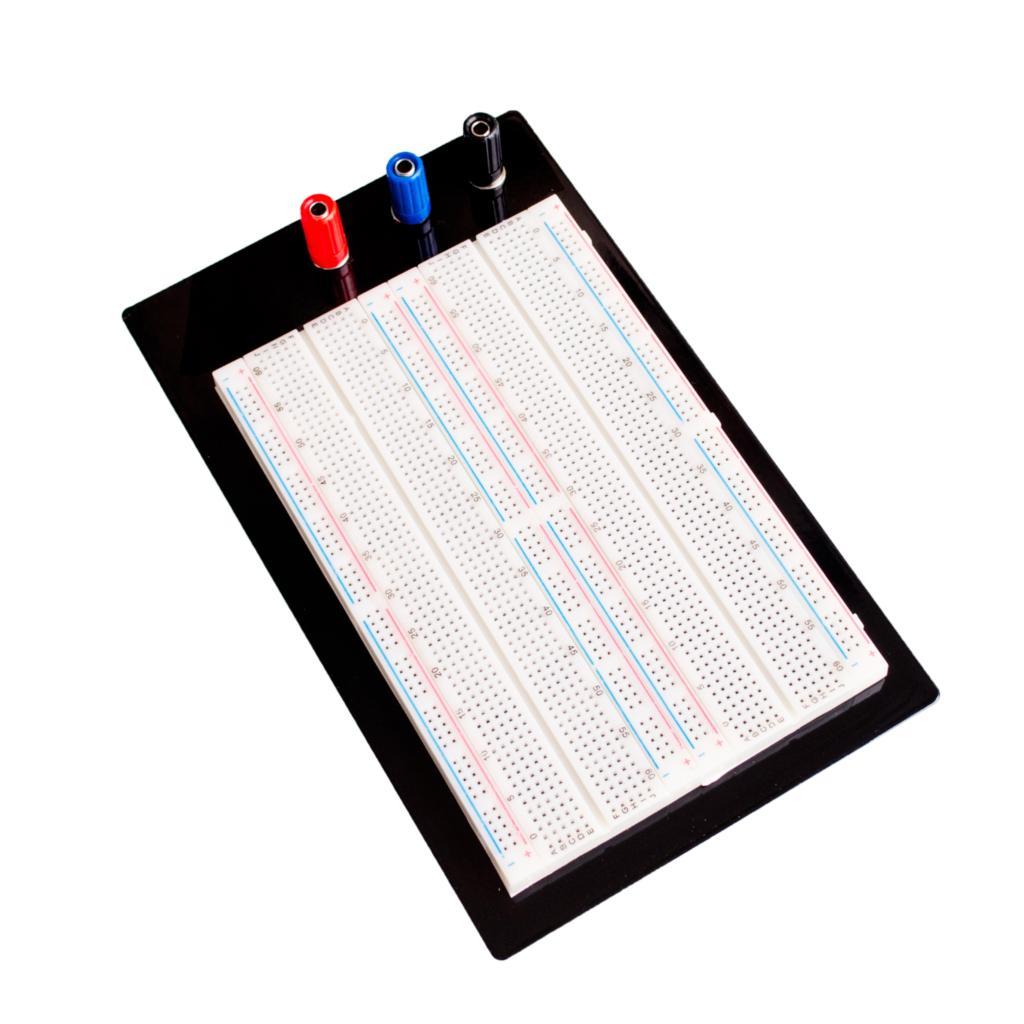

- Arduino UNO (or any other Arduino)
- Jumper wires
- 6X LED
- Breadboard
- Visuino program: Download Visuino
Start Visuino, and Select the Arduino UNO Board Type
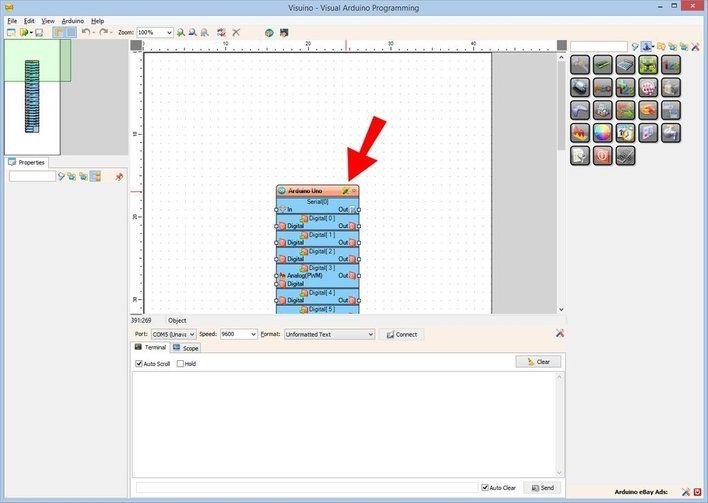
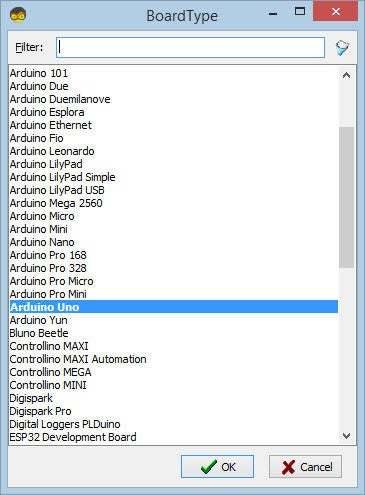
To start programming the Arduino, you will need to have the Arduino IDE installed from here: https://www.arduino.cc/.
Please be aware that there are some critical bugs in Arduino IDE 1.6.6. Make sure that you install 1.6.7 or higher, otherwise this Instructable will not work! If you have not done follow the steps in this Instructable to setup the Arduino IDE to program Arduino UNO! The Visuino: https://www.visuino.eu also needs to be installed. Start Visuino as shown in the first picture Click on the "Tools" button on the Arduino component (Picture 1) in Visuino When the dialog appears, select "Arduino UNO" as shown on Picture 2
In Visuino Add Components
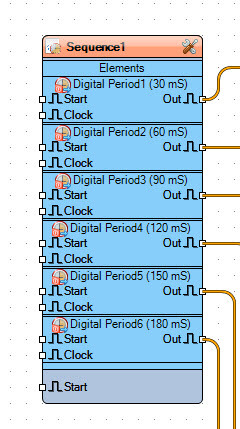
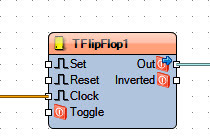
- Add "Sequence" component
- Add 6x "Toggle(T) Flip-Flop" component
In Visuino Set Components
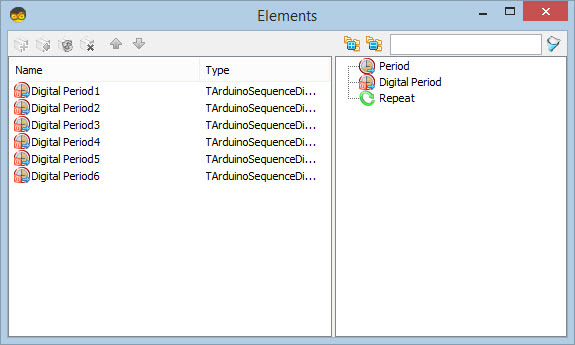
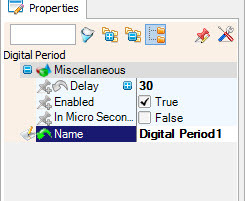
Select "Sequence1" component and under properties window set "Repeat" to "True"
Select "Sequence1" component, double click on it. In the "Elements" Dialog:Drag 6X "Digital Period" element to the left.
- Select "Digital Period1" element and under properties window set "Delay" to "30"
- Select "Digital Period2" element and under properties window set "Delay" to "60"
- Select "Digital Period3" element and under properties window set "Delay" to "90"
- Select "Digital Period4" element and under properties window set "Delay" to "120"
- Select "Digital Period5" element and under properties window set "Delay" to "150"
- Select "Digital Period6" element and under properties window set "Delay" to "180"
In Visuino Connect Components
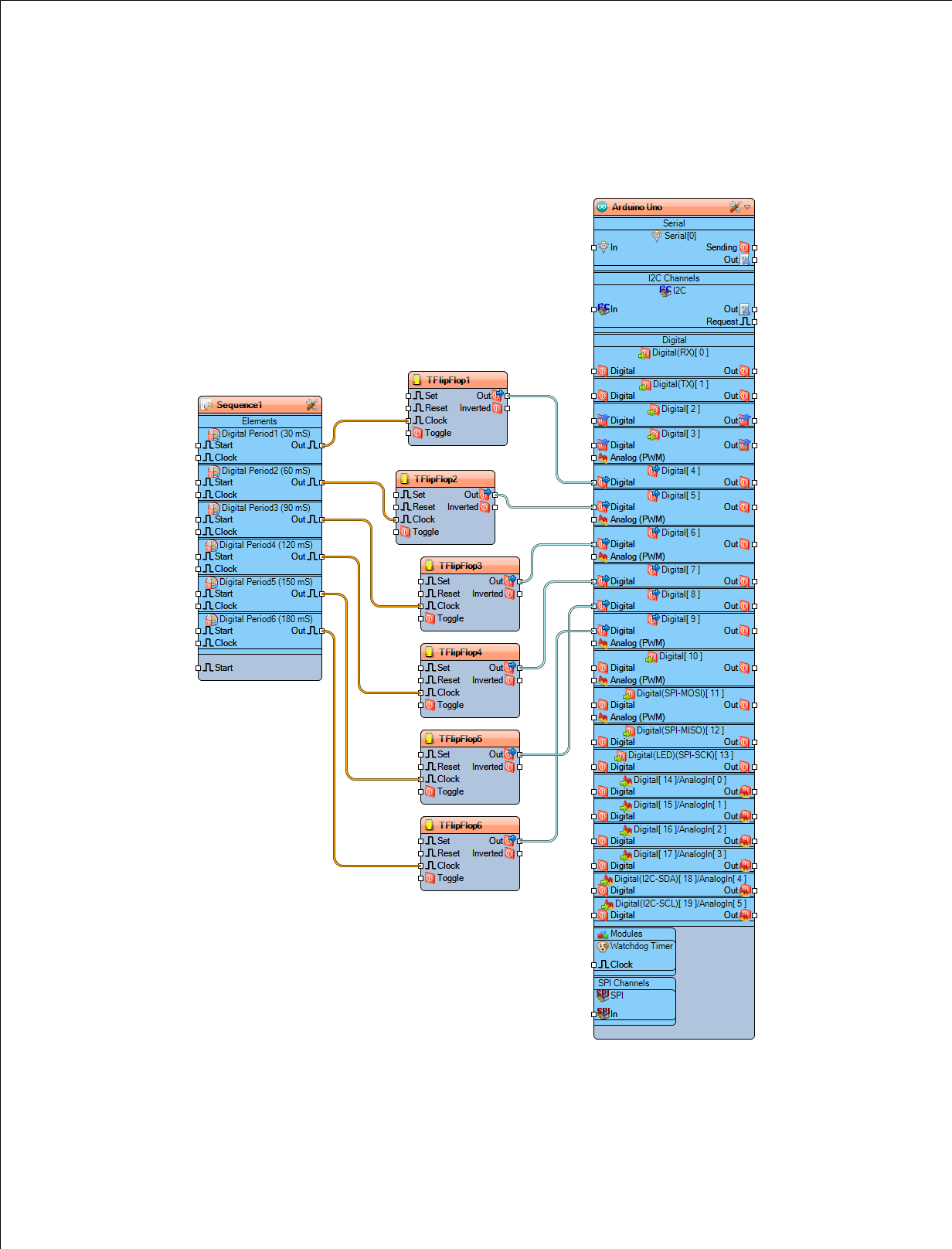
- Connect "Sequence1" component "Digital Period1" pin [Out] to "TFlipFlop1" component pin [Clock]
- Connect "Sequence2" component "Digital Period1" pin [Out] to "TFlipFlop2" component pin [Clock]
- Connect "Sequence3" component "Digital Period1" pin [Out] to "TFlipFlop3" component pin [Clock]
- Connect "Sequence4" component "Digital Period1" pin [Out] to "TFlipFlop4" component pin [Clock]
- Connect "Sequence5" component "Digital Period1" pin [Out] to "TFlipFlop5" component pin [Clock]
- Connect "Sequence6" component "Digital Period1" pin [Out] to "TFlipFlop6" component pin [Clock]
- Connect "TFlipFlop1" component pin [Out] to Arduino board Digital pin [4]
- Connect "TFlipFlop2" component pin [Out] to Arduino board Digital pin [5]
- Connect "TFlipFlop3" component pin [Out] to Arduino board Digital pin [6]
- Connect "TFlipFlop4" component pin [Out] to Arduino board Digital pin [7]
- Connect "TFlipFlop5" component pin [Out] to Arduino board Digital pin [8]
- Connect "TFlipFlop6" component pin [Out] to Arduino board Digital pin [9]
The Circuit
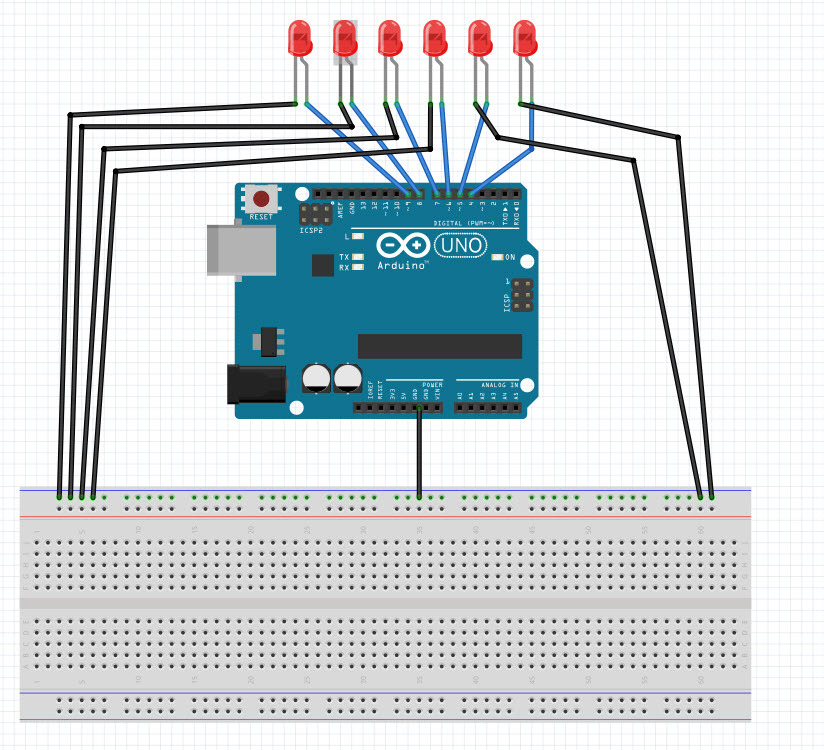
- Connect LED1 positive pin (Anode) to Arduino Digital pin [4]
- Connect LED2 positive pin (Anode) to Arduino Digital pin [5]
- Connect LED3 positive pin (Anode) to Arduino Digital pin [6]
- Connect LED4 positive pin (Anode) to Arduino Digital pin [7]
- Connect LED5 positive pin (Anode) to Arduino Digital pin [8]
- Connect LED6 positive pin (Anode) to Arduino Digital pin [9]
- Connect Arduino pin [GND] to breadboard GND pin
- Connect LED1 negative pin (Cathode) to breadboard GND pin
- Connect LED2 negative pin (Cathode) to breadboard GND pin
- Connect LED3 negative pin (Cathode) to breadboard GND pin
- Connect LED4 negative pin (Cathode) to breadboard GND pin
- Connect LED5 negative pin (Cathode) to breadboard GND pin
- Connect LED6 negative pin (Cathode) to breadboard GND pin
Generate, Compile, and Upload the Arduino Code

In Visuino, at the bottom click on the "Build" Tab, make sure the correct port is selected, then click on the "Compile/Build and Upload" button.
Play
If you power the Arduino UNO module, the LEDs should start to run.
Congratulations! You have completed your project with Visuino.
Also attached is the Visuino project, that I created for this Instructable. You can download and open it in Visuino: https://www.visuino.eu